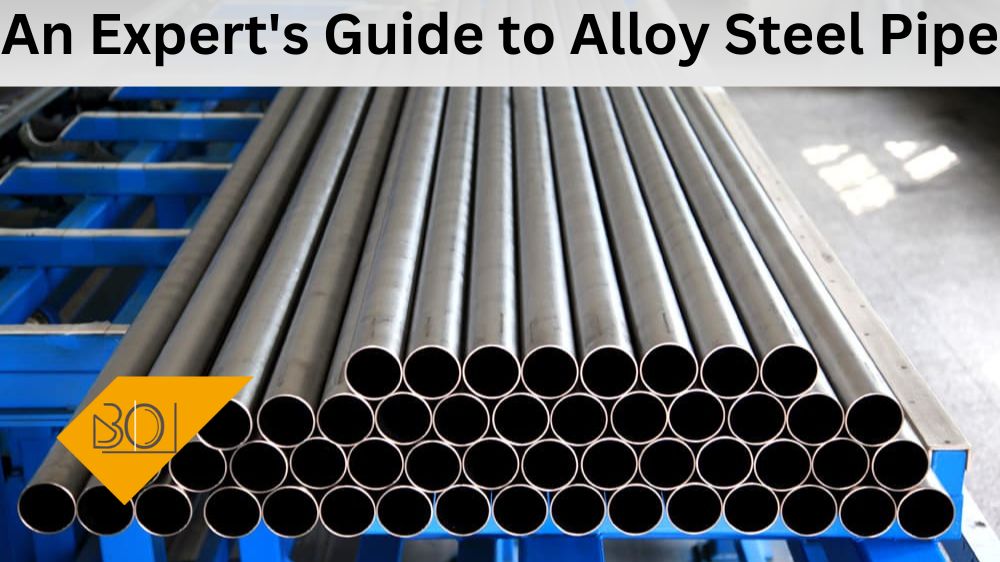Are you looking for an expert guide to alloy steel pipes? Whether you’re a professional fabricator, engineer, or DIY enthusiast who needs the strongest and most reliable materials for your tube projects, this article is designed to give you the comprehensive information you need. Alloy steels are specifically created for high-strength applications, which makes them perfect when able to endure continuous use in extreme conditions. As well as covering the types of alloy pipe available, we’ll also look at their performance advantages and where they’re commonly used today. So if you want to generate extra durability in your projects using one of the toughest pipes on offer – read on!
What are Alloy Steel Pipes
Alloy Steel Pipes are high-strength and durable pipes made from a combination of alloying elements. They are typically used in the oil and gas industry and for structural purposes in marine or construction projects. Alloy steel pipes have exceptional fatigue strength, corrosion resistance, weldability, flexibility, tensile strength and impact resistance. The added alloying elements improve these properties significantly compared to carbon steels. Depending on the type of alloy used, these pipes can be highly resilient against aggressive chemicals and extreme temperatures while preventing cracking or bursting. This makes them ideal for applications where longevity is key due to their long service life expectancy without deterioration or loss of performance capabilities.
How Alloy Steel Pipes Are Made
Alloy steel pipes combine carbon with other elements such as chromium, manganese, molybdenum and vanadium. This creates a stronger, more durable type of pipe that can resist corrosion better than regular carbon steel. In manufacturing, alloy steel tubes are formed through seamless or welded processes before being cut to size based on specifications. Hot-rolling and cold-drawing techniques are the most common methods used to make these pipes. Hot rolling involves heating the tube over 1000F, while cold drawing requires pulling it through a die under tension until the desired diameter is achieved. This ensures that each alloy steel pipe meets industry standards for strength and quality control measures.
Alloy Steel Pipe Properties
Alloy steel pipes are composed of materials with unique physical and chemical properties. These pipes have enhanced strength, toughness, wear resistance, corrosion resistance, hardenability, and the ability to handle high temperatures. Additionally, alloy steels can withstand impacts better than regular steels due to their increased hardness and strength. Furthermore, the alloying elements give these pipes superior weldability and formability compared to other types of steel pipe. Finally, alloy steel piping also offers excellent machinability, which makes it ideal for various applications in nearly any industrial setting.
Uses of Alloy Steel Pipes
Alloy steel pipes are used in various industries, including automotive, aerospace, construction, and energy. Alloy steel pipes are commonly used in natural gas, oil, and water pipelines. In the automotive industry, alloy steel pipes are used in components like crankshafts, gears, and camshafts. In construction, alloy steel pipes create ductwork, scaffolding frames, and structural steel sections.
Benefits of Alloy Steel Pipes
The primary benefits of alloy steel pipes are their exceptional strength and durability, making them ideal for use in high-stress environments. Additionally, alloy steel pipes offer superior resistance to corrosion, oxidation, and heat compared to standard steel pipes. The excellent properties of alloy steel pipes make them a great choice for applications where a combination of strength and reliability is needed.
Conclusion:
Alloy steel pipes are integral to various industries due to their strength, durability, and versatility. In this post, we have discussed what alloy steel pipes are, how they are made, and their properties, uses, and benefits, giving you a comprehensive understanding. If you are considering using alloy steel pipes in your application, choosing high-quality pipes from reputable manufacturers is essential to ensure they meet your specific requirements.

